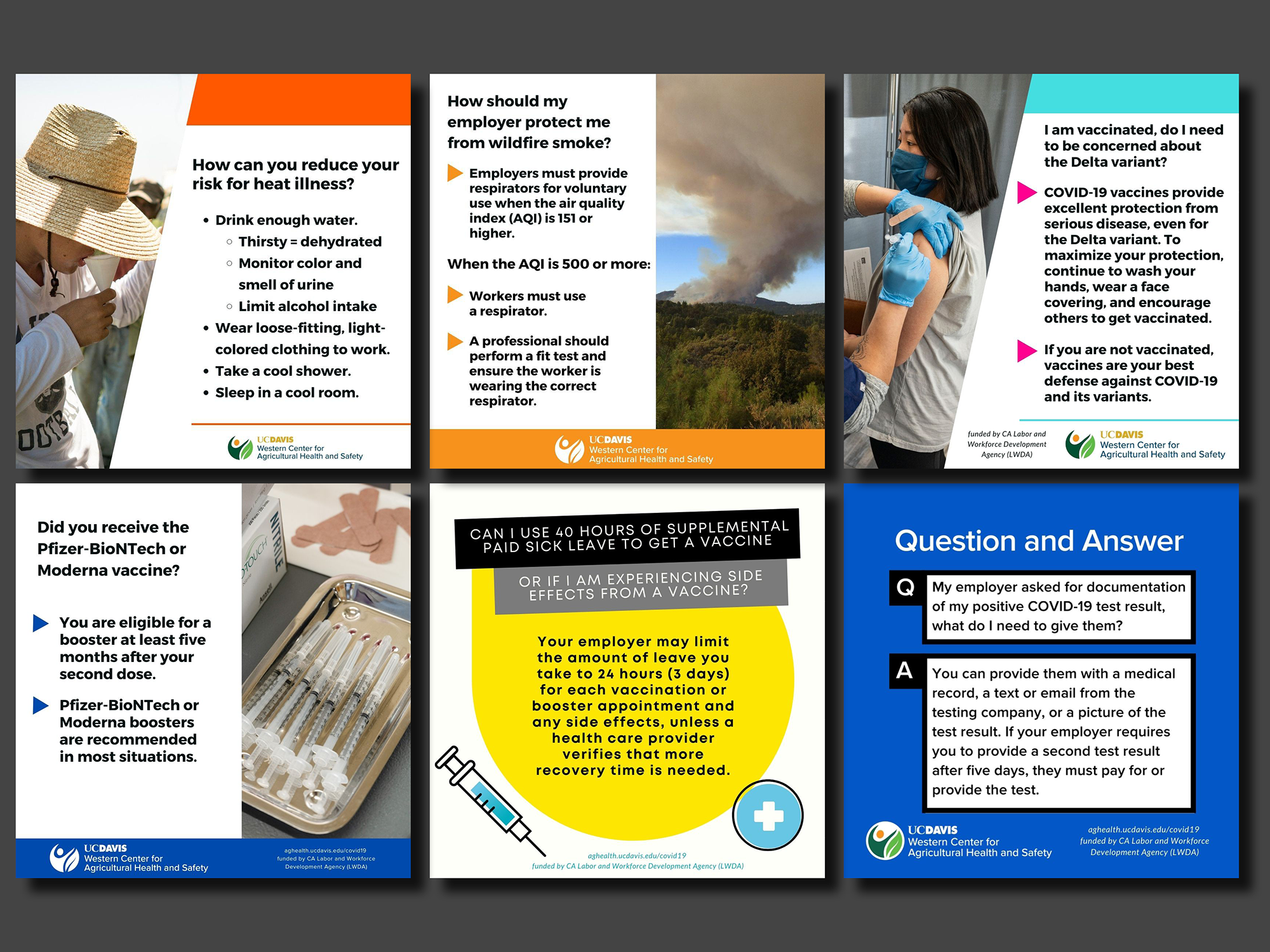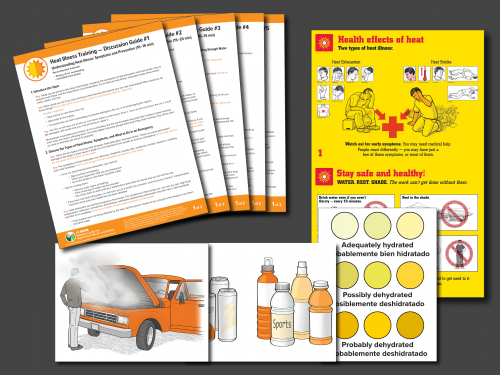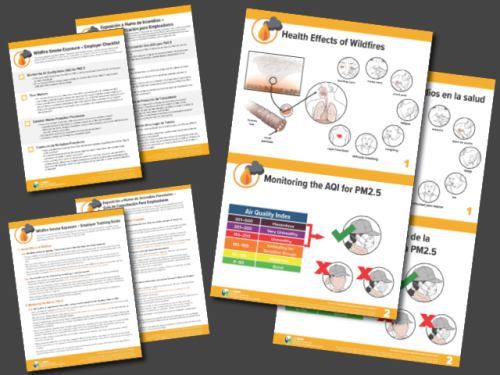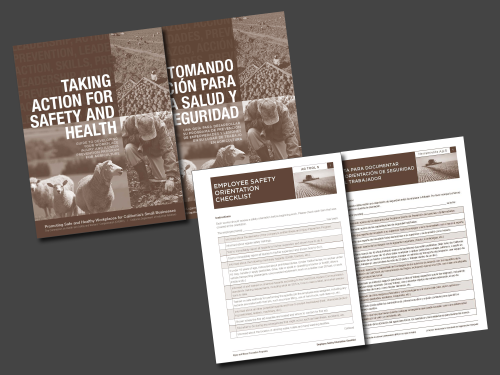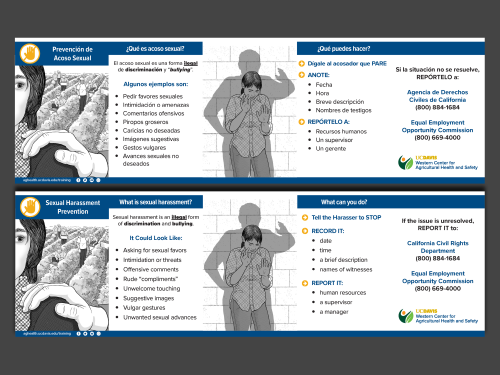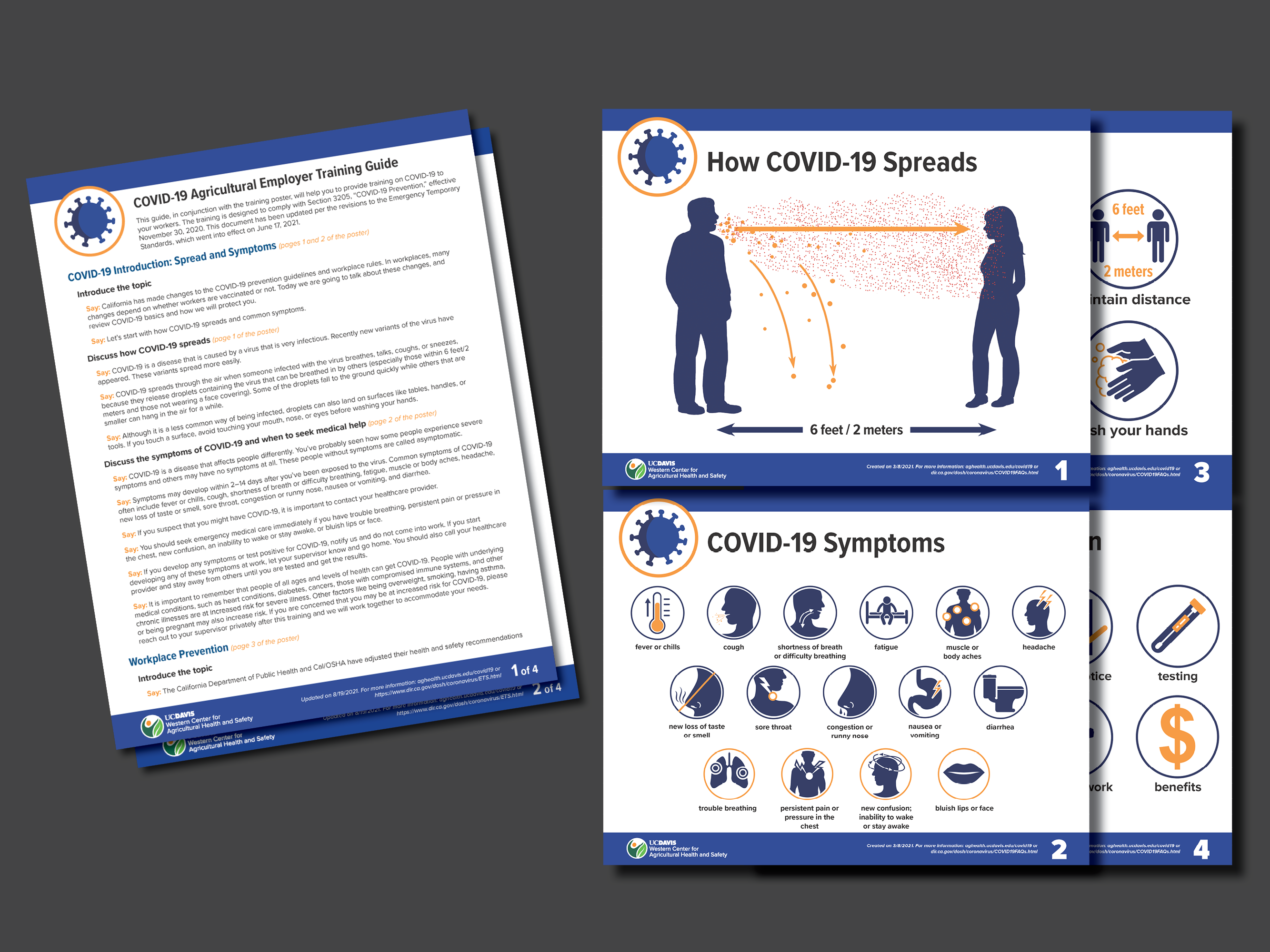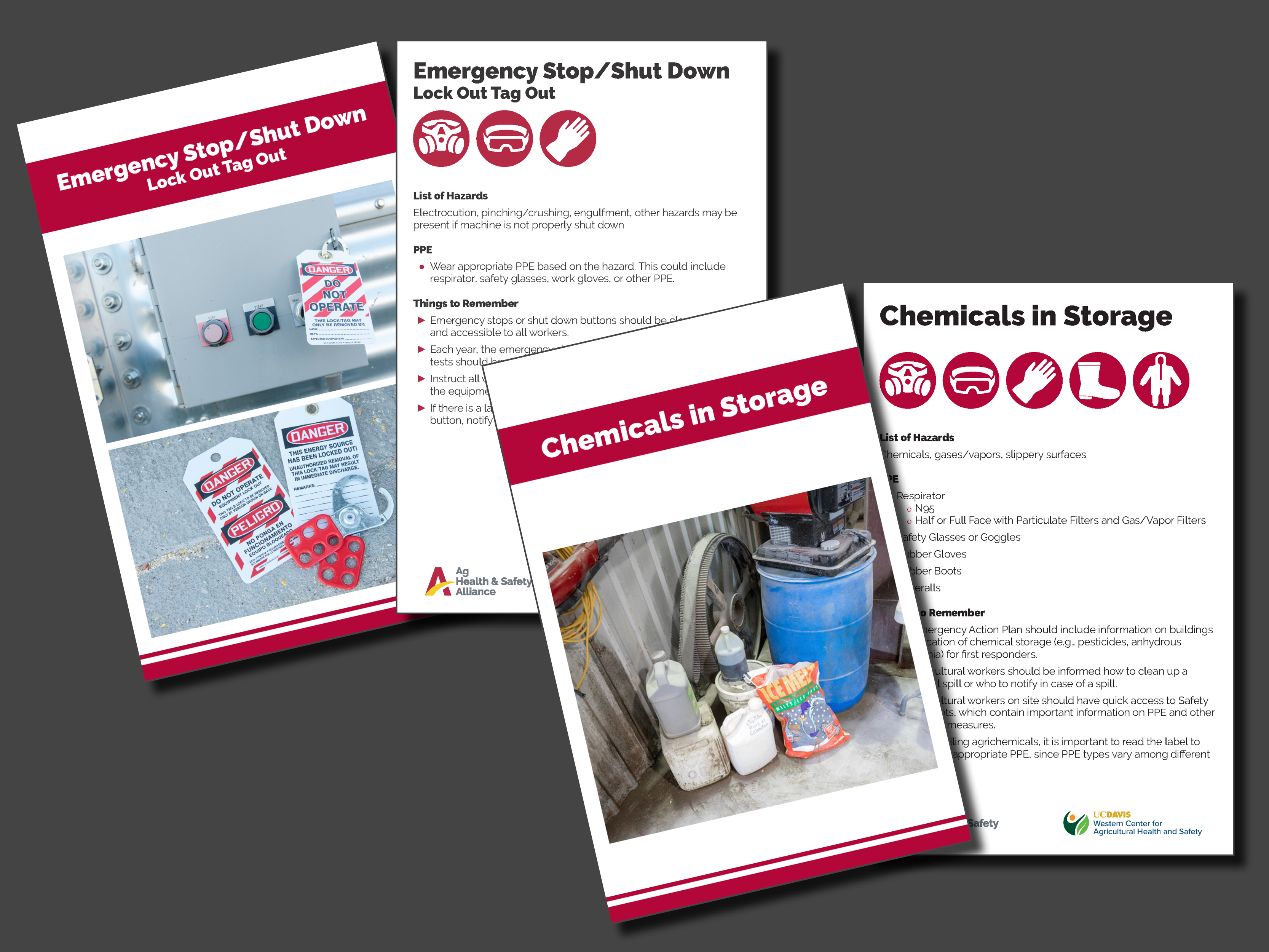Workers' Rights Resources
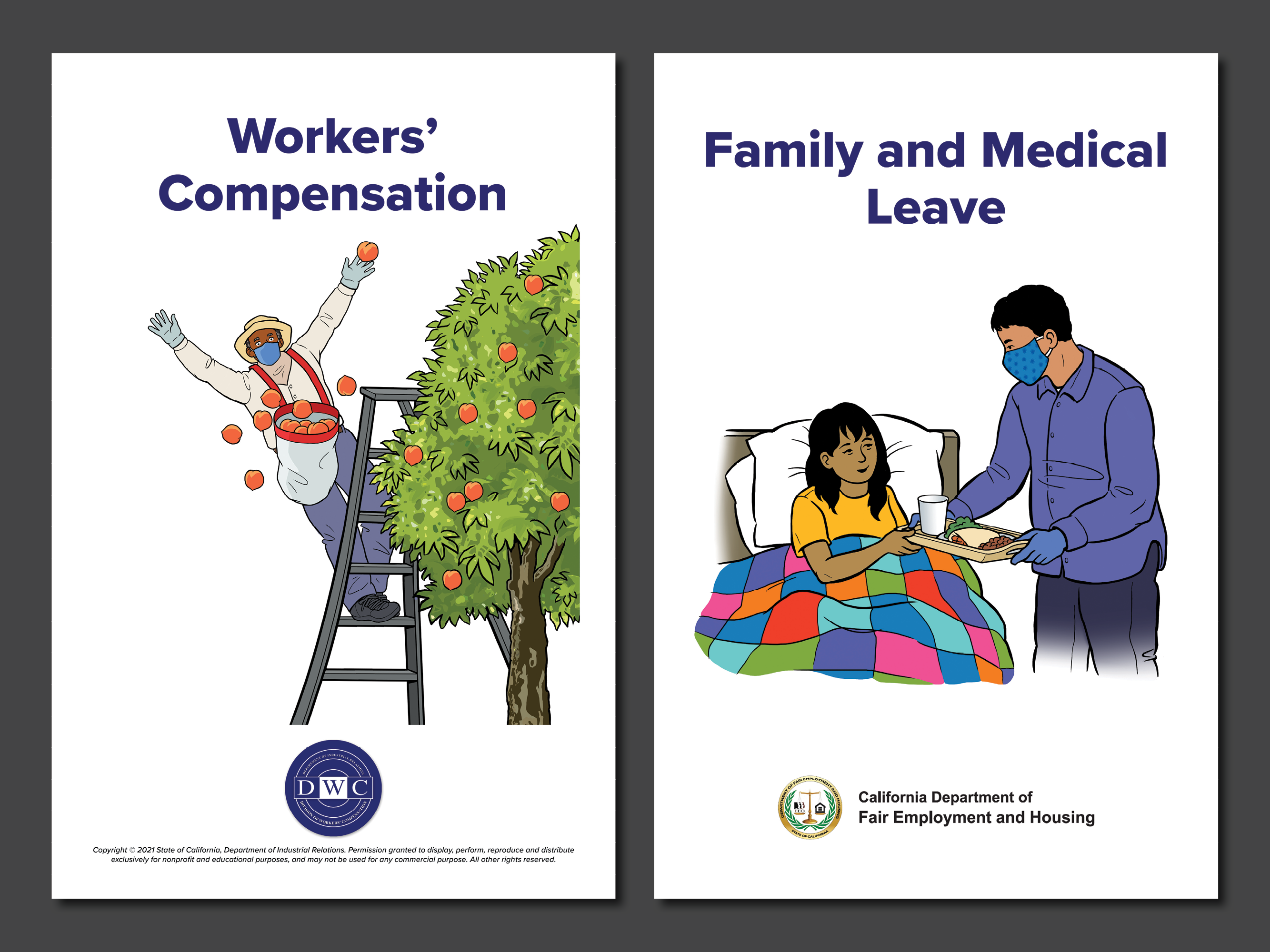
- Unemployment Insurance (English and Spanish)
- Workers' Rights Training Flip Chart for Organizations (English/Spanish)
- Paid Sick Leave (English and Spanish)
- H-2A information postcard (Spanish)
Animal Worker Health and Safety

- Dairy Safety Training Guide (English/Spanish)
- Dairy Fotonovela (English/Spanish)
- Respirator Pocket Card (English/Spanish)
- Bird Flu Exposure Prevention Employer Checklist (English/Spanish)
- Bird Flu Information for Employers (English/Spanish/Hmong/Punjabi)
- What Workers Need to Know About Bird Flu (English/Spanish/Hmong/Punjabi)

